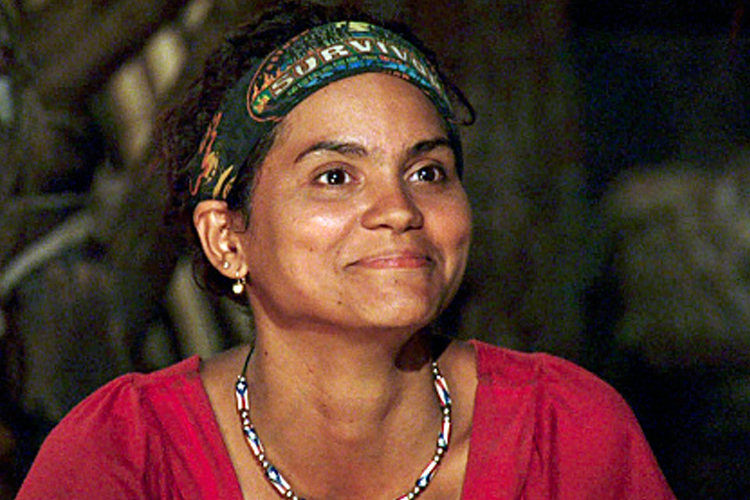During last night’s “Survivor” finale reunion show, host Jeff Probst claimed that many fans have told him the “Heroes vs. Villains” season is the best one yet. Initially, I blew off the comment as the self-congratulatory promotion at which these reunion shows excel, but then I realized that, compared with the dull contrivance of other recent seasons, it’s probably the truth.
Not to damn the “Heroes vs. Villains” iteration with faint praise here. I really enjoyed the season, which brought back players I love (“Boston” Rob Mariano) and love to hate (Rupert Boneham), and featured a high number of unexpected boots and blindsides. I like Sandra Diaz-Twine, and I like that she won again (or, really, that anyone besides Russell Hantz won).
Bringing back polarizing personalities for yet another all-stars go-round hid the problems facing the show to a certain extent, but it didn’t solve them, and when “Survivor” returns to the civilians-only format next fall, it won’t have Benjamin “Coach” Wade’s samurai sermonizing to offer as entertainment. Can the show return to its earlier form? Or is it inevitable that a show with 20 seasons behind it will falter? Has “Survivor” run out of ways to make us care?
I certainly hope so, because almost all the twists that producers have added over the years have complicated the game without making it more interesting. (The idea of dividing the tribes along ethnic lines had some promise but didn’t really deliver on it in the end.) I can understand the thinking behind embellishments like hidden immunity idols, or sending players to exile; in theory, it introduces an element of randomness into the gameplay and keeps the contestants (and viewers) on their toes.
In practice, though, it shifts the focus of the game from the titular survival to the show’s motto, “Outwit, Outplay, Outlast.” The social aspect of the game has become the most important one, whereas earlier seasons focused more on the day-to-day business of, you know, surviving: making fire, finding and boiling water, catching a thumb-size fish and dividing it eight ways. Recent seasons have concerned themselves less with pushing the players’ physical boundaries while living in the wild, and more with setting strategic hurdles; reward challenges center around food as often as they used to, but the contestants don’t seem desperately hungry, as they did in the past, but rather merely bored with an all-coconut diet.
Colby Donaldson implied at one point during the reunion Q-and-A that production had circumscribed the Survivors’ movements during the “Heroes vs. Villains” season — they couldn’t move around much, or explore the jungle. Concerns about safety no doubt motivated what Colby referred to as a “quarantine” (and several players had already suffered fairly significant injuries during challenges). But we already have a show about sitting around, forming alliances, and stabbing each other in the back in the name of monetary reward; it’s called “office politics,” and it’s airing every weekday in cubicle farms from Bakersfield to Bangor. Most viewers won’t want to give it another hour of their lives each week unless there’s a chance that someone could get eaten by a bear — preferably Rupert and his Beard Of Humorless Judgment.
I’ve had enough Rupert to last a lifetime, and enough Russell, too. It’s not Rupert or Russell themselves, as people, that I object to, although I find them each objectionable in his way — Rupert for taking the game, and himself, far too seriously, and acting as though the Hero designation is the equivalent of a congressional medal of some sort; Russell for paranoid toadery that shows little understanding of long-term strategy. But they’ve become teacher’s pets of the production, and it’s tiresome to watch the show engineer rewards for them that their respective juries already declined to grant.
Russell has gone in front of the jury twice, and lost twice, not receiving a single vote from the most recent jury; this isn’t mastery of the game, like he’d have you believe. It’s that he’s loathsome, and anyone else getting that far is a sure winner if pitted against him. And yet, a CBS.com online poll dubbed him “Player of the Season” and netted him a hundred grand — for two failures in a row.
Rupert has never made it as far as the finals in three attempts, but for him, the producers cocked up a Mr. Pirate Congeniality award or some damn thing, and gave him his own million dollars. OK, they called it “America’s Tribal Council” and let viewers vote, but the whole thing had a rigged feeling to it. When you structure the competition so that the jury chooses the winners, you have to live with the outcome. You can’t undermine your own brand by passive aggressively giving a bunch of money to other players who did not win the jury vote.
And this isn’t even mentioning Probst’s clear preference for athletic physical specimens like James Clement (also given a hundred grand by the producers after his season, despite having gotten voted out with not one, but two immunity idols in his possession). I agree that the game has come to rely too much on scheming, but Probst is an executive producer and presumably has the power to change that instead of indulging in a tribal-council favoritism that’s starting to smell of sexism.
The “Survivor” premise still has plenty of life left in it, but between the goofy extra gameplay elements and the favoritism shown to various non-winners, it seems like the producers don’t trust that premise to yield good television. Going back to basics — dropping the contestants in the middle of nowhere with a canteen and their conversational skills — is the best way to get the show back on track. And now that it’s gone back to the all-stars well three times, it’s probably the only way left.
Sarah D. Bunting is a pop-culture writer who lives in Brooklyn. She can sit around a campfire and talk trash with the best of them.

